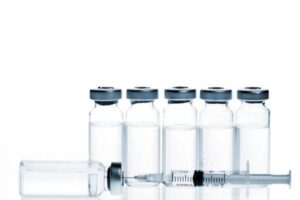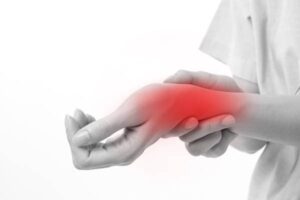
Maximising Results with GHRP-6 and Ipamorelin Peptide Stacking
Peptide stacking is a sophisticated method that involves the deliberate selection and combination of specific peptides to enhance their individual effects, leading to superior results

For sure, you might have already heard how peptides can effectively improve your overall physical performance. But, did you know that they can also assist in injury repair?
Here, you can explore the benefits of peptides when it comes to injury repair and other interesting facts about peptides.
Keeping your body in shape, flexible and active is essential to maintain a quality life. So, you might extra effort to do physical activities. While some may participate in different sports activities, some stick to physically demanding jobs. Also, other people prefer to stay active on weekends while others are comfortable being active 3 to 4 days or daily.
Regardless of the duration of staying active, always find time to stay fit and active. However, while you are maintaining an active lifestyle, there are some instances that you are at risk from injuries.
People who participate in sports, bodybuilding or going to the gym are at risk of sustaining injuries. As a result, you feel distressed about your fitness regimes.
Muscle tissue and connective tissue are the most common types of physical injuries that can cause sprain or strain of ligament or tendon. Injuries related to connective tissue involve slower repair rates. This is where you can experience initial inflammation and pain and then, regeneration of cells or proliferation. Last is the remodelling.
When it comes to recovery from injuries, you can take advantage of different therapies so that you can properly be healed up and keep your life back on track. Thus, you can consider peptides to help you enhance the repair and regeneration process.
Some of the common injuries that can benefit from the use of peptides include:
When you consider peptides during the injury repair process, you may notice different benefits, including:
Although research has indicated the above advantages, many peptides have not yet been approved for human consumption.
Peptides are made from at least 50 amino acids that are linked together. They are the building blocks of protein and provide plenty of functions in the body such as messaging and signalling. Some act like hormones, while others act like neurotransmitters. Peptides are known to bind to receptors which can be found on the cell surface and signal the other cells what to do. They are very specific making them safe and well-tolerated, and they can control or influence how the body reacts to physical exercises or even diet.
There are some instances that active people cannot avoid the risk of pain or even frustrations due to injury. Recovering from an injury takes times, and proper attention should be observed so that complications can be avoided. As a result, people have to wait for the perfect time to get back on their normal life scenario, playing field, dance floor, or at the gym.
Particular substances in your body can increase the injury repair rate as well as connective tissue repair. Your injury can be stimulated with GH secretagogues and peptides. They are substances that can cause another substance to secrete, including growth hormone.
GH is effective at communicating with the tissue cells when it comes to the formation of muscle fibers, new cells, and growth factors and as well as joint rejuvenation. Peptides and secretagogues help in stimulating growth hormone release from the pituitary gland to speed up both repair and regeneration mechanism.
Several key peptides can help you with your fast recovery while ensuring that your overall well-being will be involved. Each peptide has its specific function in the body, and it is a nice idea to be more familiar with them.
Thymosin Beta 4
Thymosin Beta 4 also known as TB500 is good at promoting skin cell, blood vessel, and muscle cell regeneration and migration. As a result, you can experience faster and more effective wound repair along with more rapid injury recovery. Thus, it is stimulated from the thymus gland.
BPC-157
BPC-157 is commonly used by research professionals as a quick healing and recovery agent, for muscle, tendon and bone injuries.
IGF-1
Insulin-like Growth Factor 1 or also known as IGF-1 is considered as the next generation in enhancing muscle building performance. It is the essential growth factor that your body produces even more than the Human Growth Factor (HGH).
MGF
Mechano Growth Factor or MGF is a potent inducer of muscle growth. It is responsible for causing trauma in the muscle cell to split resulting in the new creation of muscle cells as well as muscle repair and growth. Also, it plays a vital role in the growth of new cells and cell repair and recovery.
CJC-1295 & Ipamorelin Blend
CJC-1295/Ipamorelin is a good combination of peptides due to a strong effect on the release of IGF-1 and Growth Hormone. It can reduce body fats employing forcing the body to burn the stored fats as a source of energy. Also, this peptide combination is also effective in increasing cellular repair, collagen production as well as regeneration.
Although physical injury will take time to go back to your usual activities, peptides can help you enhance recovery. Also, you will be able to improve your well-being and prevent any health risks.
Despite the advancing research into peptides, many are yet to be approved for human consumption. Peptides from Direct SARMs are intended for medical research purposes only.
References:
[1] https://www.ncbi.nlm.nih.gov/ pmc/articles/PMC4940902/
[2] https://www.mdpi.com/2310-2861/7/4/152
Disclaimer: We do not supply sarms or peptides to any individual under the age of 21. You must be a licensed and qualified healthcare practitioner. Our team of dedicated professionals are committed to providing an extensive range of products used ONLY in the process of laboratory research by responsible trained and professional individuals. All products listed on this website (direct-sarms.com) and provided through Direct Sarms are intended for laboratory research purposes only. The products listed on this website are NOT for human or animal consumption or ingestion of any kind.

Peptide stacking is a sophisticated method that involves the deliberate selection and combination of specific peptides to enhance their individual effects, leading to superior results

Maximizing Healing and Rejuvenation: Exploring the Benefits of TB500 and GHK-Cu Peptides Combined In the rapidly changing field of biomedical research, peptides have become key

Worldwideshipping

Visa/Mastercard/Zelle
Cryptocurrency /Transfers

Safe and Secure Shopping

We Distribute
From

YOU MUST BE OVER 21 YEARS IN ORDER TO USE THIS WEBSITE. All of the products are to be handled only by properly trained and qualified LABORATORY or RESEARCH professionals.